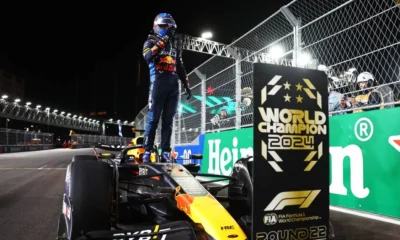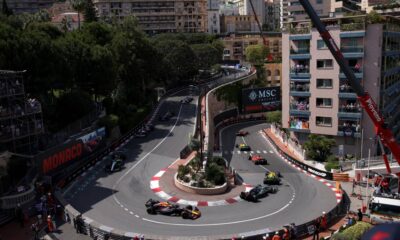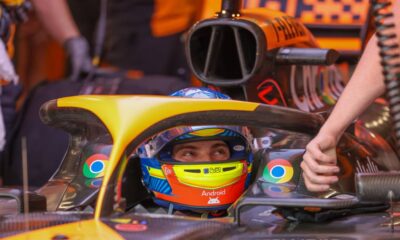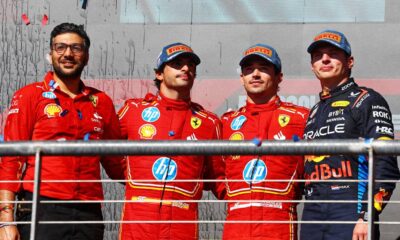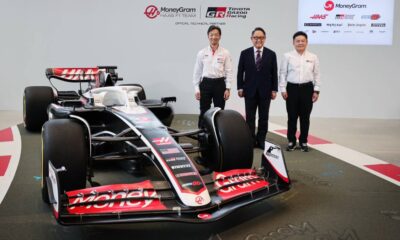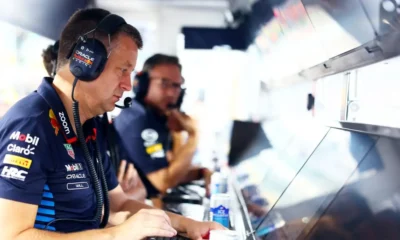Motorsport
Is Formula 1 currently dangerous? Drivers have agreed to change the rules, but Red Bull boss is clearly against
Porpoising, or bouncing on the straights, is the big topic that the Federation Internationale de l’Automobile (FIA) and Formula 1 will be addressing after the Azerbaijan Grand Prix. Many drivers have described driving in Baku as dangerous and a health hazard, but Red Bull boss Christian Horner disagrees with the potential rule change.
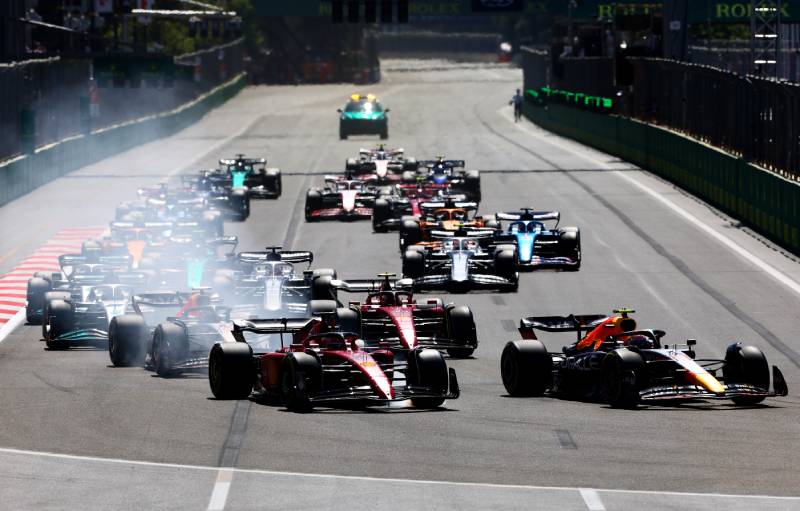
Porpoising, or bouncing on the straights, is the big topic that the Federation Internationale de l’Automobile (FIA) and Formula 1 will be addressing after the Azerbaijan Grand Prix. Many drivers have described driving in Baku as dangerous and a health hazard, but Red Bull boss Christian Horner disagrees with the potential rule change.
Indeed, the return of the ground effect to Formula One has brought about no small amount of mischief, which has hit some teams worse than others.
The queen of motorsport entered a new era at the start of this year, which included a significant overhaul of the technical regulations, something we have written about in detail before.
And as the above article states, as part of the return of ground effect to F1, the floor of the new monoposts has undergone major changes. The flat floor has been replaced by ‘venturi tunnels’, which accelerate the airflow under the car, creating a vacuum that pressurizes the car to the track. Hence the term ground effect, or suction effect.
But what no one expected before the season was the accompanying phenomenon of this suction effect – called porpoising, which is a significant aerodynamic problem.
Because for the ground effect and aerodynamics to work properly on the car, the air under the floor has to flow constantly. At high speeds on the straights, however, the monoposts will sink so far under the enormous weight of downforce that they touch the asphalt itself, i.e. the racetrack.
In this case, the airflow under the floor is logically interrupted and the formula immediately loses downforce. But as a result, the monoplane will rise again. All of this happens at a really high speed, and the result is that bouncing.
This is perhaps the problem that Mercedes has struggled with the most, and still struggles with. In practice, it is that a bouncing monoposto is harder to control before a corner, and so drivers have to brake well before the ideal braking point, or rather, this is what Lewis Hamilton complained about most.
Needless to say, this bouncing is very demanding on the components, and on a track like Baku, for example, it can even put the drivers’ health at risk.
Hamilton was suffering from severe back pain at the end of the race, George Russell confirmed this earlier, and now Pierre Gasly in the AlphaTauri and both Ferrari drivers.
On the occasion of the Azerbaijan Grand Prix, in short, all the drivers agreed that this is not the way to go on. It should be noted that most teams have already managed to significantly reduce porpoising and Red Bull, for example, has minimal problems with this phenomenon.
However, Red Bull’s boss immediately reacted to the issue, and when discussing the drivers’ call for the FIA to modify the rules to eradicate porpoising, he pointed out that the easiest thing to do is, of course, to lift the car. Or to set a different ground clearance.
However, this is undesirable in the world of Formula 1, for the reason that when the ground clearance is changed, the monoposts lose power and some downforce in the corners.
“You should never run a car that is not safe. Some teams have more trouble with porpoising, some less, so it would be unfair to punish those who have done a very good job despite those who simply missed their technological target,” Horner said at the press conference, quoted by Motorsport.
Horner also added that the FIA should only intervene if there is a problem on the entire grid. If only a few teams are affected, it is up to them to resolve the technological issue.
“So there is a means to ensure that there is no porpoising on the car. But it’s at the expense of the car’s performance. So the easiest thing to do is to complain. Every team has a choice,” Horner concluded.
F1, Motorsport

